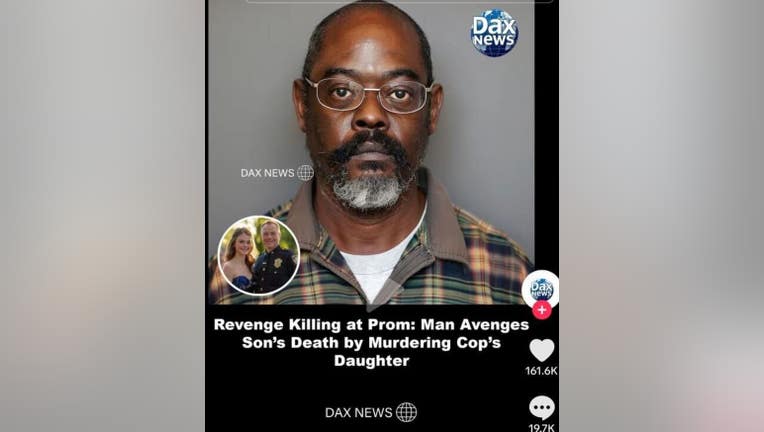Livonia prom revenge murder story is fake news, police say

(Photo: TikTok)
LIVONIA, Mich. (FOX 2) - A video making its rounds on TikTok about a man murdering a teen at her prom in Livonia isn't just inaccurate – it is completely made up.
The video details a murder that allegedly occurred after the Livonia High School prom. According to the video that was posted by a TikTok account full of apparent AI-generated content, a man named Douglass Barnes killed a teen girl named Samantha McCaffery. The video says the murder was revenge for Samantha's cop father, Mike McCaffery, killing Barnes's son several years ago.
However, the story is fake, and it's not the only fabricated story posted on the social media account.

FOX 2 Reality Check: Livonia prom revenge killing
A video making its rounds on social media claims a man murdered a teen girl at her prom in Livonia. However, it's not real.
"It's not going on in Livonia. It's fake news going around social media," Livonia police said.
Though the details seem believable, they aren't. Livonia High School doesn't exist in Michigan, and no person named Douglass Barnes lives in Michigan. Also, a reverse-image search for the mugshot in the video also only pulls up stories about the fake murder, suggesting that the image itself may be AI-generated.
Despite this, the story has been spreading online. To make it worse, AI-generated news websites have picked up the story, making it appear legitimate.
Earlier this month, TikTok said it would start labeling AI-generated content on the platform. However, the fake Livonia murder story wasn't flagged.
Being vigilant when consuming information online is an important part of combating fake and AI-generated news. If you see a story online, be skeptical and check the source. If you do not recognize the source as a legitimate news outlet, search for the story. In the case of the prom murder, one story does come up on Google, but it is from a news site that is not real and does not include where the website is based - a sign it may not be reliable.
Fake news isn't the only issue artifical intelligence is creating. The technology is being used to clone voices, allowing scammers to trick victims into thinking they are speaking with a loved one.
The mimicking of another person's voice could soon be a major source of online scams, misinformation, and trouble for governmental institutions.

